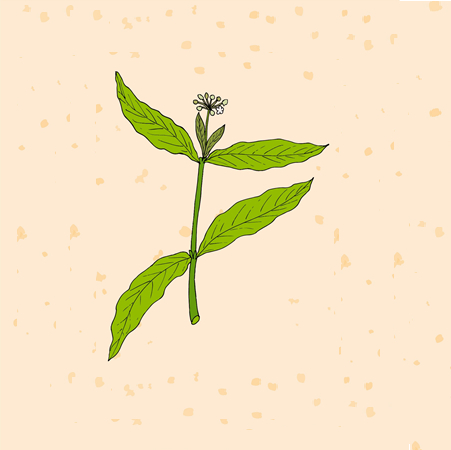
Background
The yohimbine in yohimbe can increase blood flow and nerve impulses to the penis or vagina. It can also help counteract the sexual side effects of certain medications used for depression.
People most commonly use yohimbe for sexual problems. It is also used to boost mood, for athletic performance, and other purposes, but there is no good scientific evidence to support these uses.
Safety Safety definitions
Special Precautions & Warnings:
Pregnancy and breast-feeding: Yohimbe is likely unsafe. Yohimbe might affect the uterus and put pregnancy in danger. It might also poison the unborn child. Don't take yohimbe if you are pregnant or breast-feeding.Anxiety: Yohimbe might make anxiety worse in people with panic disorder. Don't use yohimbe if you have anxiety.
Prostate problems: Yohimbe might make the symptoms of BPH (benign prostatic hyperplasia) worse. Use yohimbe with caution if you have BPH.
Heart disease: Yohimbe can seriously harm the heart. Don't use it if you have heart disease.
High blood pressure: Yohimbe can increase blood pressure. Don't use it if you have high blood pressure.
Kidney disease: Yohimbe might slow or stop the flow of urine. Don't use yohimbe if you have kidney disease.
Liver disease: Liver disease might change the way the body processes yohimbe. Don't use yohimbe if you have liver disease.
Post-traumatic stress disorder (PTSD): Yohimbe might make PTSD symptoms worse.
Schizophrenia: The yohimbine in yohimbe might trigger psychosis in people with schizophrenia.
Surgery: Yohimbe might increase the risk for bleeding. People who take yohimbe should stop at least 2 weeks before surgery.
Effectiveness
Dosing & administration
Interactions with pharmaceuticals
Clonidine (Catapres)
Interaction Rating=Moderate Be cautious with this combination.
Yohimbe might reduce the effects of clonidine. This might cause blood pressure to go up. Monitor your blood pressure closely.
Medications changed by the liver (Cytochrome P450 1A2 (CYP1A2) substrates)
Interaction Rating=Minor Be watchful with this combination.
Some medications are changed and broken down by the liver. Yohimbe might change how quickly the liver breaks down these medications. This could change the effects and side effects of these medications.
Medications changed by the liver (Cytochrome P450 2D6 (CYP2D6) substrates)
Interaction Rating=Moderate Be cautious with this combination.
Some medications are changed and broken down by the liver. Yohimbe might change how quickly the liver breaks down these medications. This could change the effects and side effects of these medications.
Medications changed by the liver (Cytochrome P450 3A4 (CYP3A4) substrates)
Interaction Rating=Minor Be watchful with this combination.
Some medications are changed and broken down by the liver. Yohimbe might change how quickly the liver breaks down these medications. This could change the effects and side effects of these medications.
Medications for depression (MAOIs)
Interaction Rating=Major Do not take this combination.
Yohimbe contains yohimbine. Yohimbine might affect the body in some of the same ways as some medications for depression called MAOIs. Taking yohimbe along with MAOIs might increase the effects and side effects of yohimbe and MAOIs.
Some common MAOIs include phenelzine (Nardil), selegiline (Zelapar), and tranylcypromine (Parnate).
Medications for depression (Tricyclic Antidepressants)
Interaction Rating=Moderate Be cautious with this combination.
Taking yohimbe along with these medications used for depression might cause shakiness and anxiety. Don't take yohimbe if you are taking these medications.
Medications for high blood pressure (Antihypertensive drugs)
Interaction Rating=Moderate Be cautious with this combination.
Yohimbe might increase blood pressure. Taking yohimbe might reduce the effects of blood pressure medications. Monitor your blood pressure closely.
Medications that decrease break down of other medications by the liver (Cytochrome P450 2D6 (CYP2D6) inhibitors)
Interaction Rating=Moderate Be cautious with this combination.
Yohimbine is changed and broken down by the liver. Some drugs decrease how quickly the liver changes and breaks down yohimbe. This could change the effects and side effects of yohimbe.
Medications that decrease break down of other medications in the liver (Cytochrome P450 3A4 (CYP3A4) inhibitors)
Interaction Rating=Moderate Be cautious with this combination.
Yohimbine is changed and broken down by the liver. Some drugs decrease how quickly the liver changes and breaks down yohimbe. This could change the effects and side effects of yohimbe.
Medications that slow blood clotting (Anticoagulant / Antiplatelet drugs)
Interaction Rating=Moderate Be cautious with this combination.
Yohimbe might slow blood clotting. Taking yohimbe along with medications that also slow blood clotting might increase the risk of bruising and bleeding.
Phenothiazines
Interaction Rating=Moderate Be cautious with this combination.
Yohimbe contains a chemical called yohimbine. Some medications called phenothiazines have some similar effects to yohimbine. Taking yohimbe along with phenothiazines might increase the risk for side effects.
Stimulant drugs
Interaction Rating=Moderate Be cautious with this combination.
Stimulant drugs speed up the nervous system. By speeding up the nervous system, stimulant medications can make you feel jittery and speed up your heartbeat. Yohimbe might also speed up the nervous system. Taking yohimbe along with stimulant drugs might cause serious problems including increased heart rate and high blood pressure. Avoid taking stimulant drugs along with yohimbe.
Interactions with herbs & supplements
Ephedra: Taking yohimbe along with ephedra, which contains ephedrine, might increase the risk of dangerously high blood pressure.
Herbs and supplements that might slow blood clotting: Yohimbe might slow blood clotting and increase the risk of bleeding. Taking it with other supplements with similar effects might increase the risk of bleeding in some people. Examples of supplements with this effect include garlic, ginger, ginkgo, nattokinase, and Panax ginseng.




